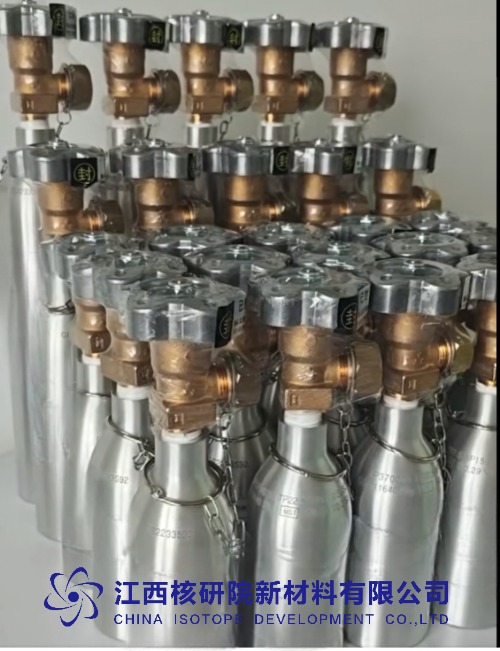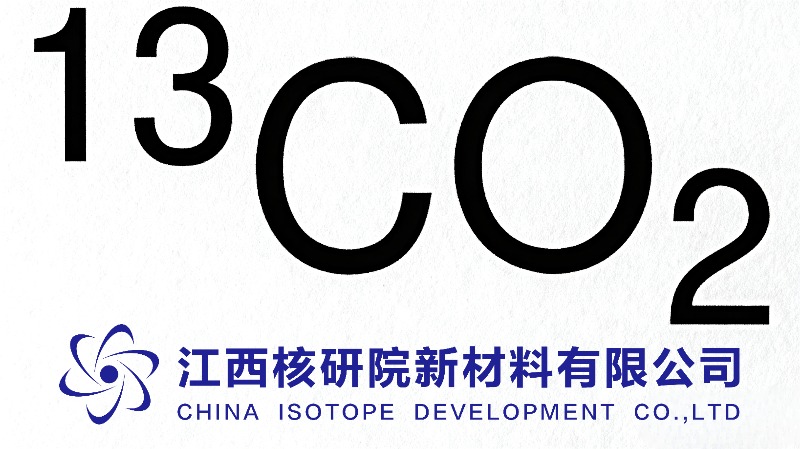Future Innovations: How ¹³CO₂ is Advancing Precision Medicine and Nutrigenomics
BY Tao, Published Aug 7, 2025
The field of medical diagnostics and personalized health is undergoing a revolution, driven by stable isotope technology. Among these advancements, carbon-13 labeled carbon dioxide (¹³CO₂) has emerged as a powerful tool in precision medicine and nutrigenomics—the study of how food interacts with genes. By enabling real-time metabolic tracking, ¹³CO₂ is paving the way for tailored medical treatments and personalized nutrition plans, transforming how we approach health optimization.
The Science Behind ¹³CO₂ in Metabolic Tracking
Unlike radioactive isotopes, ¹³C is stable, making it safe for repeated use in patients. When introduced into biological systems—whether through ingestion (e.g., labeled substrates) or inhalation—¹³CO₂ is metabolized and exhaled, providing a measurable biomarker for:
- Enzyme activity (e.g., liver cytochrome P450 function).
- Nutrient absorption (e.g., fats, carbohydrates).
- Microbiome interactions (e.g., gut bacteria fermentation).
This data is critical for personalized medicine, where treatments are adjusted based on an individual’s unique biochemistry.
Key Innovations in Precision Medicine
1. Cancer Metabolism & Early Detection
Tumors exhibit altered metabolic pathways (Warburg effect), often relying on accelerated glycolysis even in oxygen-rich environments. Researchers are using ¹³C-glucose breath tests to:
- Detect early-stage cancers (e.g., lung, colorectal) by measuring abnormal CO₂ production.
- Monitor treatment efficacy in real-time, assessing whether therapies successfully disrupt cancer metabolism.

Carbon-13 labeled carbon dioxide (¹³CO₂)
2. Pharmacogenomics: Optimizing Drug Responses
Individuals metabolize drugs at different rates due to genetic variations in liver enzymes (CYP450 family). By administering a ¹³C-labeled drug probe, clinicians can:
- Predict drug clearance rates, avoiding toxicity or inefficacy.
- Personalize dosage regimens for antidepressants, anticoagulants, and chemotherapy.
3. Gut-Brain Axis & Neurological Disorders
Emerging studies suggest that gut microbiota imbalances may influence Parkinson’s, Alzheimer’s, and depression. ¹³CO₂ breath tests help:
- Track short-chain fatty acid (SCFA) production, linked to neuroinflammation.
- Assess probiotic therapy effectiveness in mental health treatments.
Nutrigenomics: The Future of Personalized Nutrition
1. Carbohydrate & Fat Metabolism Profiling
- Lactose/Fructose Malabsorption Tests: By administering ¹³C-labeled sugars, clinicians identify intolerance patterns, guiding dietary recommendations.
- Ketone Metabolism Tracking: In ketogenic diets, ¹³CO₂ breath analysis helps optimize fat adaptation for athletes and diabetics.
2. Microbiome-Directed Foods
The gut microbiome ferments fibers into beneficial metabolites (e.g., butyrate). Using ¹³C-labeled prebiotics, researchers can:
- Identify optimal fiber sources for an individual’s microbiome.
- Develop customized probiotic blends to enhance metabolic health.
3. Sports Science & Performance Optimization
Athletes use ¹³CO₂ tests to:
- Measure fat vs. carbohydrate oxidation rates during exercise.
- Adjust nutrition timing for peak endurance performance.
Challenges & Future Directions
While ¹³CO₂ diagnostics hold immense promise, key challenges remain:
- Cost & Accessibility: High-purity ¹³C substrates are expensive, limiting widespread adoption.
- Standardization: More clinical trials are needed to establish universal testing protocols.
However, advances in portable breath analyzers and AI-driven metabolic modeling are expected to drive affordability and scalability.
Conclusion: A New Era of Personalized Health
¹³CO₂ technology is bridging the gap between genetics, metabolism, and nutrition, enabling data-driven health decisions. As research progresses, we can expect:
- At-home breath test kits for real-time metabolic monitoring.
- AI-powered diet plans based on ¹³CO₂ metabolic fingerprints.
- Early disease prediction models using breath biomarkers.
The future of medicine isn’t just about treating disease—it’s about preventing it through precision science, and ¹³CO₂ is at the forefront of this transformation.
Would you like a deeper dive into any specific application (e.g., cancer diagnostics, microbiome research)?
(Follow our update on www.asiaisotopeintl.com or contact tao.hu@asiaisotope.com for more information or call us for a in-time communications.)







